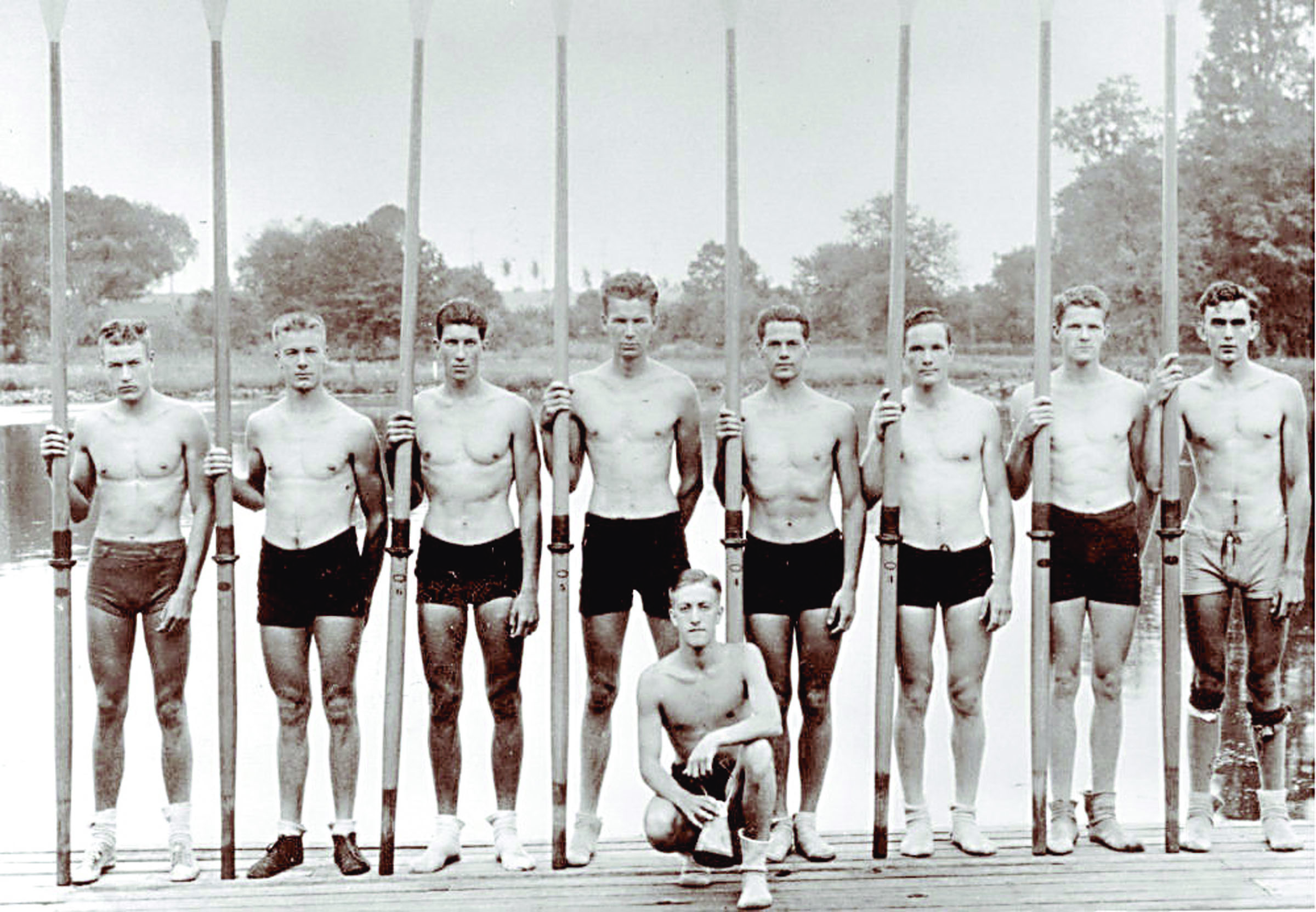PORT ANGELES — Joe Rantz was 15 when his family left him behind in Sequim.
His stepmother, Thula, a gifted violinist, couldn’t stand it there anymore. She and Joe’s father took their other children and drove away.
“I would stay with you, but I can’t. The little kids are going to need a father more than you are,” Harry Rantz told his son.
“You’re pretty much all grown up now anyway.”
This was the Great Depression. Joe Rantz managed to feed himself with berries, eggs from the backyard chicken coop, mushrooms from the woods.
Then he went to town, where he tried playing his banjo and singing for spare change.
But “there was no such thing as spare change in 1929 . . . Downtown Sequim was desolate. The State Bank of Sequim was still afloat but would fail within months. More and more storefronts were boarded up every day.”
So begins the story of a boy who learned not to trust people. Don’t depend on them. Don’t love them. They’ll hurt you to the core.
But the story turns around, in the most profound way. Against all odds, Rantz becomes one of The Boys in the Boat: Nine Americans and their Epic Quest for Gold at the 1936 Berlin Olympics.
The Boys in the Boat is about Rantz’s climb to the height of his sport — but it is also about how he came to trust his crew.
It is a story of personal triumph through friendship; of getting through college at the University of Washington despite crushing poverty; and of love: Rantz married his Sequim High School sweetheart, Joyce Simdars.
They raised a family of their own, a family that included Judy Willman. She was the woman whom Brown, who lives outside Seattle, met six years ago at a homeowners’ association meeting.
Willman told him that her dad, who was in the last weeks of his life and in hospice care at her home, was reading one of Brown’s earlier books.
She asked Brown if he would come by and meet her father.
Brown did. And after awhile, their conversation turned to Rantz’s experiences growing up in Sequim and then to how he went on to become a champion athlete.
Rantz was one of the Washington oarsmen who rowed against Hitler’s handpicked team. The crew from the Pacific Northwest — sons of Depression-stricken loggers and dairy farmers — raced against regimented Germans in crisp whites with swastikas on their chests.
Brown worked for five years on The Boys in the Boat. He came to Sequim to imagine what life was like for young Joe Rantz and Joyce Simdars.
He read countless newspaper stories, scrapbooks, coaches’ log books and diary entries.
He learned as much as he could, not only about what led to the Washington team rising to the world stage but also how Hitler and Joseph Goebbels planned the Berlin Olympics.
And Brown, who was not a rower, sought to immerse himself in the world of Northwest crew.
He conducted numerous interviews with, among others, rowing coach John Halberg.
The men sat down together again and again so Brown could get a feel for being in a narrow cedar shell, flying across Lake Washington.
Long before the Olympics, the Seattle boat builder George Pocock has a pivotal conversation with Rantz.
Think of a well-rowed race as a symphony, Pocock tells the young man.
“If one fellow in an orchestra was playing out of tune . . . the whole piece would naturally be ruined. What mattered more than how hard a man rowed was how well everything he did in the boat harmonized with what the other fellows were doing,” Brown writes.
“Joe, when you really start trusting those other boys, you will feel a power at work within you that is far beyond anything you’ve ever imagined. Sometimes, you will feel as if you have rowed right off the planet and are rowing among the stars.”
The Washington crew stayed close until the end of their lives, Brown said. All but one lived into advanced old age, except for Chuck Day, who succumbed to lung cancer in his late 40s.
Rantz died at age 93 in 2007 and was laid to rest beside his wife, Joyce, in Sequim View Cemetery.
Brown said The Boys in the Boat will be a tough act to follow. When you live with a story for years, you have to be very much in love with it, he said.
Boat is Brown’s third book, after The Indifferent Stars Above: The Harrowing Saga of a Donner Party Bride and Under a Flaming Sky: The Great Hinckley Firestorm of 1894.
For Boat, Brown visited Rantz’s boyhood home on Silberhorn Road, listened to Rantz’s daughter’s vividly remembered stories and interviewed other children of Rantz’s fellow oarsmen.
He also went to Germany to explore every corner of the rowing facilities at Grunau, little changed since the Olympics there in 1936.
The book, Brown said, became an exploration of the intense joy born of collaboration, as in the case of the athletes, and the pure evil that can come with people following charismatic leaders, as with Hitler and the Nazis.
Seventy-five years later, the writer believes, there is plenty to think about.
He hopes readers take with them not only a sense of admiration for the nine young men who went from Washington to Berlin “but also for that whole generation.
They literally climbed in the boat and pulled together “to get through the Depression and win World War II,” Brown said.
The people of Rantz’s generation did it “by learning to trust one another, by doing things together.”
Features Editor Diane Urbani de la Paz can be reached at 360-452-2345, ext. 5062, or at diane.urbani@peninsuladailynews.com.

